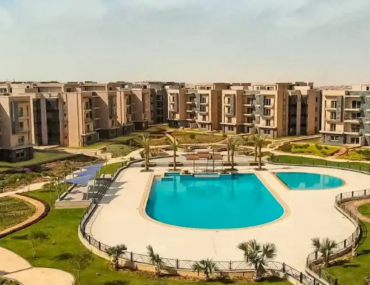In today’s fast-paced rental market, the concept of living has evolved far beyond the traditional model of leasing an apartment or house. Increasingly, renters are seeking flexible, affordable, and community-driven options that suit modern lifestyles. This shift has given rise to one of the most exciting real estate trends in recent years: co-living and shared spaces.
What is Co-Living?
Co-living is a modern housing arrangement where residents share living spaces such as kitchens, lounges, and sometimes even work areas, while still enjoying the privacy of their own bedrooms. Unlike traditional shared apartments, co-living is built on a sense of community, convenience, and affordability, often with curated amenities and services included.
For young professionals, digital nomads, and students, co-living provides the ideal balance between independence and social interaction. It’s also a lifestyle choice that minimizes isolation while maximizing networking opportunities.
Co-Living Through the Lens of Egyptian Culture
In Egypt, the idea of sharing spaces isn’t entirely new. For decades, Egyptians have embraced community living, whether through extended family households or tight-knit neighborhoods where everyone knows each other. Co-living, in many ways, is a modern twist on these cultural traditions — blending a sense of togetherness with the convenience of contemporary housing.
In cities like Cairo, Giza, and Alexandria, where urban density and rising rental costs often make independent living challenging, co-living spaces provide a practical solution. For young Egyptians moving away from their hometowns for university or career opportunities, co-living offers not only affordability but also a ready-made community to ease the transition.
A Natural Fit for Egyptian Hospitality
Hospitality lies at the heart of Egyptian culture, and this value is naturally reflected in the rise of shared living. From offering tea to neighbors to gathering for large family meals, Egyptians are accustomed to social interaction in daily life. Co-living communities capture this essence by creating shared kitchens, lounges, and even event spaces where residents can connect — much like extended family members.
The Youthful Shift Toward Shared Spaces
Egypt’s youth population plays a key role in shaping rental trends. With a significant percentage of the population under 30, demand is shifting toward flexible, budget-friendly, and social housing options. Shared living arrangements cater perfectly to this demographic, offering more than just a roof over one’s head. They provide networking opportunities, shared experiences, and a lifestyle that aligns with the ambitions of young professionals and students.
Co-Living as a Response to Urban Growth
Egypt’s rapidly expanding urban centers continue to attract people from across the country seeking work and education. This growth has placed pressure on traditional housing, leading many to explore alternatives. Co-living helps bridge the gap by offering compact, efficient units in central areas where standalone apartments may be costly.
For example, shared living in New Cairo or 6th of October City makes it easier for residents to access educational hubs, business districts, and cultural attractions, all while keeping housing expenses manageable.
Blending Tradition with Modern Living
What makes co-living especially interesting in the Egyptian context is how it merges the old and the new. While Egyptians value family, community, and hospitality, they are also increasingly drawn to modern amenities such as coworking spaces, fitness studios, and high-speed internet. Co-living developments bring these worlds together — creating spaces where tradition meets innovation.
Co-Living and the Egyptian Student Community
One of the strongest drivers of shared living in Egypt is the student population. Every year, thousands of young Egyptians move from smaller towns and governorates to study in universities located in Cairo, Giza, Mansoura, and Alexandria. Traditionally, many students opt for shared apartments, dividing costs among friends or classmates. Co-living takes this concept further by offering fully serviced spaces, communal study areas, and modern facilities tailored to academic life.
This arrangement not only makes housing more affordable but also creates a support system where students can build friendships, exchange knowledge, and adapt quickly to city life. For parents, co-living provides peace of mind, as many developments include security, housekeeping, and management teams that ensure a safe environment.
Professionals and the Rise of Flexible Living
It’s not only students driving this trend — young professionals in Egypt are increasingly attracted to co-living. As the workforce becomes more mobile and remote work more common, there’s a growing need for short-term, flexible rental options in key business districts such as New Cairo, Smart Village, and 6th of October City.
Instead of committing to long-term leases or furnishing an entire apartment, professionals can move into co-living spaces that are already equipped with everything they need — from high-speed Wi-Fi to shared workspaces and fitness facilities. This lifestyle mirrors the global trend of prioritizing convenience, networking, and flexibility.
Social Life and Community Spirit
In Egyptian culture, social life is central — whether it’s neighbors gathering over coffee, families celebrating together, or friends spending evenings in cafés. Co-living communities echo this spirit by providing residents with opportunities to connect daily. Shared kitchens become spots for late-night cooking sessions, communal lounges double as venues for movie nights, and outdoor terraces often host cultural or recreational events.
This model is especially appealing for Egyptians living away from their families, as it recreates a sense of belonging and companionship. It’s not just about renting a room — it’s about joining a lifestyle.
Economic Advantages in the Egyptian Market
With rising rental costs in central neighborhoods like Zamalek, Garden City, and Heliopolis, co-living is an affordable alternative for many renters. By sharing expenses such as electricity, water, internet, and maintenance, residents can live in desirable locations without exceeding their budgets.
Additionally, the fully furnished nature of most co-living units saves tenants the cost and hassle of buying furniture or appliances. For many Egyptians starting their careers or moving to new cities, this makes the transition smoother and financially manageable.
Cultural Adaptability: Tradition Meets Modern Trends
Some might wonder whether co-living truly fits with Egypt’s cultural values. The answer lies in adaptability. While traditional housing has long emphasized family-based living, Egypt has also seen decades of shared apartment arrangements among students and workers. Co-living simply formalizes and enhances this practice with modern amenities and a stronger sense of community.
In fact, the Egyptian value of “el gam3eya” (collective effort and support) aligns closely with co-living principles. It reflects a culture that has always embraced cooperation, whether through family gatherings, neighborhood solidarity, or shared resources.
Looking Ahead: The Future of Co-Living in Egypt
As urban development continues to expand, especially in New Administrative Capital, New Cairo, and Sheikh Zayed, the potential for co-living is immense. Real estate developers are increasingly exploring innovative residential projects that combine private living with community experiences.
Egypt’s youthful population, combined with shifting lifestyles and economic realities, suggests that co-living will become more than just a passing trend. It will likely grow into a mainstream housing option that redefines how Egyptians view urban rentals.
Searching for Co-Living & Shared Spaces in Egypt
For those interested in exploring this lifestyle, searching online platforms has become the easiest way to find co-living opportunities. Whether you’re a student seeking affordable housing near a university or a professional looking for a flexible rental near a business hub Bayut Egypt makes the process simpler, faster, and more transparent as it features listings that include shared apartments, co-living developments, and short-term rental options tailored to modern lifestyles.



